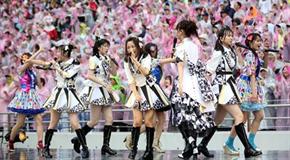Features
Studying Japanese CD Sales

Part of the reason for the continued success of CDs is the way the music industry protects its interests with regard to copyrights. Streaming and downloading aren’t as widespread because content tends to be limited. But there’s another reason why CD sales remain high in Japan: idol marketing. Manufactured pop groups, like AKB48, stake their success on live performances where fans can meet their idols face-to-face and even shake hands with them. However, in order to get tickets to such events, the fans have to purchase CDs, and many fans buy more than one copy of a single or album in order to get as many chances to meet the people who made them.
Consequently, some in the industry feel that CD sales in Japan are artificially high, since they don’t truthfully reflect widespread tastes. Pop culture website Rocketnews24 recently pointed out that at least one long-standing Japanese CD chain, Disk Union, is resisting this trend, perhaps at its own peril. In its advertising and store displays Disk Union says rather forcefully, “Music doesn’t exist so that you can squeeze someone’s hand. It exists to shake your heart.”
The owners of the nationwide chain are taking a stand that music is not an ordinary commodity. On the other hand, another chain, Tower Records, a remnant of the hallowed American record store that has since gone out of business in the U.S., is countering the Disk Union campaign with its own, which asks, “What’s wrong with music being the extra content you get with a handshake? After all, handshakes shake people’s hearts too.”
As Rocketnews24 points out, Tower is more than a record store. It also rents out space to record companies and promoters to put on mini-concerts and events that sell idols, like handshake sessions. And in fact, CD sales in Japan have always been pegged closely to live performance. People who see concerts invariably want a souvenir of the experience, and always buy CDs and records afterwards. It’s almost guaranteed.